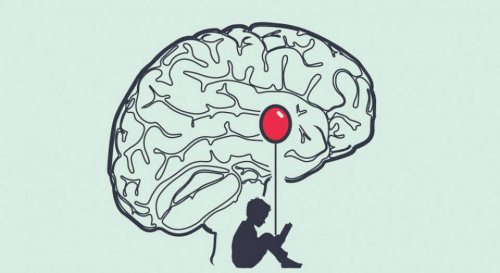Alex Honnold, The Man Without Fear

Alex Honnold represents one of the most enigmatic neuroscience cases. He is the exception to the rule. Most people have the fear of falling. This is why even newborn babies experience upheavals if they feel they’re falling.
It’s an instinctive fear. It comes within our genetic package. Falling puts our integrity and our lives at risk. Therefore, biology intervenes and imposes fear as a warning sign to the risk of falling into the abyss.
What is so strange about Alex Honnold is that he doesn’t have the fear of falling. He is a 32-year-old rock climber who was born in the United States. He became famous for his free climbing adventures (without any security lines or protection equipment). As a matter of fact, he climbs alone. Those who practice rock climbing know that doing it alone makes them extremely vulnerable. It’s almost suicidal!
However, for Alex Honnold, it’s a normal adventure. When he climbs this way, he feels just as if he were drinking coffee. He doesn’t experience fear or nervousness of any type. Consequently, this drove neurologists to study his brain.
“Don’t fear prison, poverty, nor death. Fear the fear itself.”
-Giacomo Leopardi-
This is Alex Honnold
For Alex Honnold, each climb is a life or death challenge. He likes surface areas that are practically vertical. He wears sportive attire. However, he only climbs with a bag of climbing chalk around his waist, to reduce humidity when climbing. He only uses his hands and feet to climb.

He already holds many world records. His style is free solo climbing. He isn’t the only one in the world who does it this way, but he’s the only one who does it at great heights, with a high level of difficulty.
He appears to be a normal guy. His attitude shows that he doesn’t feel different or special. He laughs a lot and is very peaceful. He knows that his activities are dangerous. Many of his friends have died while trying to climb the way he does. When asked if he experiences fear, he says that he has accepted the idea of death better than others.
His mother says that he was a difficult child, but he denies this. He climbed everything from an early age. When he was 10 years old, he started practicing on a climbing wall. Then, he started scouting on some rock climbing trips. At the age of 19, he dropped everything else and started climbing full time. He lives in his van and says he’s a minimalist.
Alex Honnold’s brain
This young man’s rock climbing achievements caught the eye of a group of researchers who decided to study his brain. It all started when neurologist Jane E. Joseph heard Alex Honnold’s testimony. She thought there was something wrong with his brain, due to the things he described and the way he spoke about his adventures. She thought there was something off in his amygdala, the brain’s fear center.
The University of South Carolina School of Medicine decided to examine Alex Honnold’s brain. They did an MRI. The first thing they checked was if the young man had an amygdala and, if he did, if it didn’t have any injuries.
The next thing they did was show him a series of highly shocking images and evaluate his reaction. They realized that Alex Honnold’s amygdala didn’t activate. It didn’t react at all. It was as if those dangerous situations didn’t cause any type of emotional impact on him.

An interesting overview
The researchers were able to prove that Alex Honnold couldn’t feel fear. However, these conclusions made them reveal some interesting hypotheses.
According to their evaluations, it’s likely that Alex’s brain adapted so much to his type of climbing, that it’s used to that stimuli. Therefore, what’s risky for most people is a completely normal situation for him.
This conclusion opened up new possibilities about fear. A new theory emerged, one that stated that a way to eliminate fear is through habituation. Gradual and systematic exposure to dangerous stimuli could render such situations completely harmless for that person. If this is the case, alternative therapies to treat fear could expand monumentally.
This text is provided for informational purposes only and does not replace consultation with a professional. If in doubt, consult your specialist.








